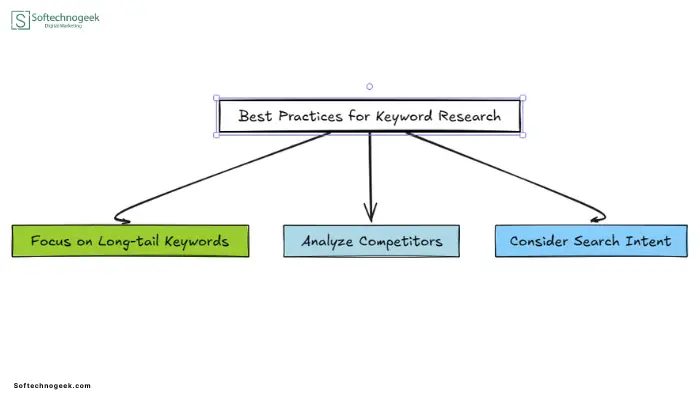An essential component of any effective SEO plan is keyword research. Whether you’re a seasoned SEO expert or a beginner, using the right tools can make a world of difference in your efforts to rank higher on Google. In this article, we’ll explore the best free tools for keyword research available in 2024.
From analyzing search volume to finding the most profitable keywords, these tools will help you optimize your website and improve your content strategy without spending a dime. Let’s dive into the best options to consider.
Why Keyword Research Is Crucial for SEO
Keyword research is foundational for effective SEO. By understanding what your audience is looking for, you can adjust your material accordingly. Effective keyword research can boost your visibility, drive more traffic to your site, and improve your rankings on Google. Whether you’re looking for high-volume keywords or niche phrases, understanding how to use keyword tools is essential for crafting an SEO strategy that works.
Top Free Tools for Keyword Research in 2024

Google Keyword Planner
Google Keyword Planner is one of the most trusted tools for keyword research, offering insights into search volume and keyword competition. It’s primarily designed for advertisers but is equally valuable for SEO professionals. By using Google Keyword Planner, you can discover the most popular keywords in your niche, identify trends, and plan your content effectively.
Pros
- Free to use with a Google Ads account
- Provides accurate data on search volume and trends
- Ideal for beginners
Cons
- Primarily designed for paid search campaigns
Ubersuggest
Ubersuggest, created by Neil Patel, is another fantastic free tool for keyword research. It provides a wealth of information, including keyword search volume, competition, CPC, and seasonal trends. Ubersuggest also offers content ideas based on your target keywords, helping you build a content strategy that ranks.
Pros
- Provides keyword suggestions and competition analysis
- Easy-to-use interface
- Shows keyword difficulty and seasonal trends
Cons
- Limited features in the free version
Answer the Public
Answer the Public is a unique tool that helps you uncover search questions and queries related to your keywords. It visualizes data from search engines, showing the most popular questions people are asking about a specific topic. This tool is perfect for finding long-tail keywords and generating content ideas.
Pros
- Visual representation of keyword questions
- Great for discovering long-tail keywords
- Free version available
Cons
- Limited number of searches per day in the free version
Moz Keyword Explorer
Moz is well-known in the SEO industry for its suite of tools, and their Keyword Explorer is no exception. Although it’s a paid tool, Moz offers a free version with limited searches. Moz Keyword Explorer provides keyword difficulty scores, search volume data, and SERP analysis to help you make informed decisions.
Pros
- High-quality search volume and difficulty metrics
- User-friendly interface
- SERP analysis for competitor research
Cons
- Free searches are limited to 10 per month
Google Trends
Google Trends is a great tool for tracking the popularity of keywords over time. By using Google Trends, you can spot trending topics and keywords, helping you to capitalize on emerging trends before they become competitive. This tool is valuable for content creators looking to stay ahead of the curve.
Pros
- Free to use
- Real-time trend data
- Helps identify keyword opportunities in trending markets
Cons
- Doesn’t offer specific keyword search volume data
Keyword Surfer
Keyword Surfer is a free Chrome extension that provides keyword search volume data directly within Google Search. As you search for a term on Google, Keyword Surfer will show you the estimated search volume, related keywords, and their metrics.
Pros
- Displays data directly in Google Search
- Offers keyword suggestions
- Easy to use
Cons
- Limited to Google search data only
WordStream’s Free Keyword Tool
WordStream’s free keyword tool offers a simple, user-friendly interface and a decent amount of data. It helps you find keyword ideas and gives suggestions based on your industry. While the free tool is limited, it’s still a valuable resource for quick keyword research.
Pros
- Easy-to-use interface
- Quick keyword idea generation
- Useful for small businesses and beginners
Cons
- Free version is limited to a small set of data
Best Practices for Keyword Research

When using these tools, remember to focus on finding keywords that are relevant to your content, have a reasonable search volume, and are not overly competitive. Keyword research is an ongoing process, and you should regularly monitor keyword performance to adjust your SEO strategy.
Focus on Long-tail Keywords: These keywords typically have lower competition and are more specific to user intent.
Analyze Competitors: Look at which keywords your competitors are ranking for and find gaps in their strategy.
Consider Search Intent: Make sure your keywords align with what your target audience is looking for.
Frequently Asked Questions
Q1. Are these tools truly free?
Yes, the tools listed here offer free versions with varying levels of access. Some tools like Google Keyword Planner require a Google Ads account, but you can still access keyword data without running an active campaign.
Q2. How do I choose the best tool for my needs?
Consider your goals: Are you targeting long-tail keywords? Do you need to monitor trends? Pick a tool that fits your specific needs. You might find it useful to use a combination of these free tools to get a comprehensive keyword strategy.
Q3. Can I use free tools for a large-scale SEO campaign?
While free tools are great for small to medium projects, larger-scale campaigns may require premium tools that provide deeper insights, more data, and advanced features.
Conclusion
In conclusion, free keyword research tools can provide immense value when building an SEO strategy without breaking the bank. Tools like Google Keyword Planner, Ubersuggest, and Answer the Public offer powerful features that help you discover new keywords, track trends, and optimize your content for search engines. While free versions may come with limitations, they are an excellent starting point for anyone looking to improve their SEO performance. Start using these tools today and refine your keyword research for better results.





